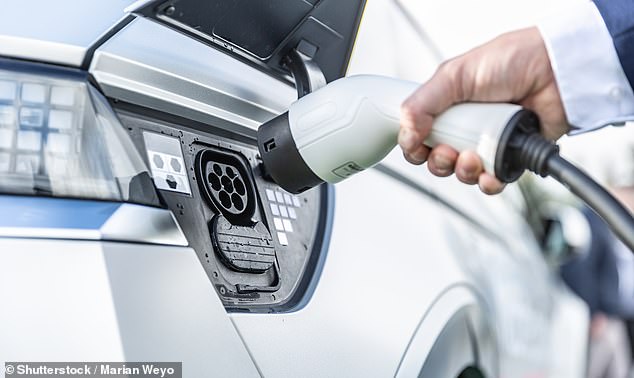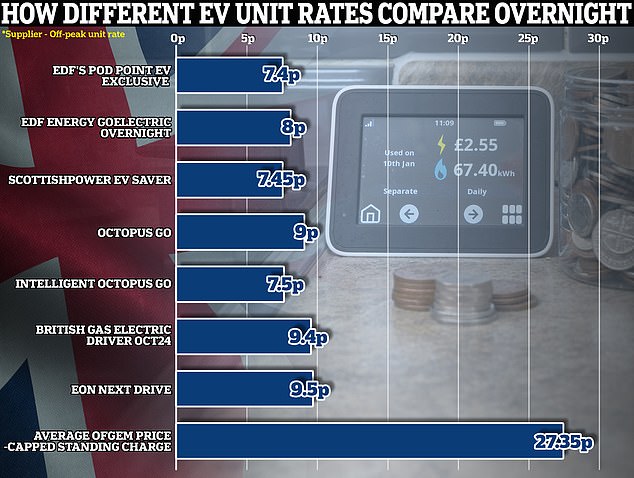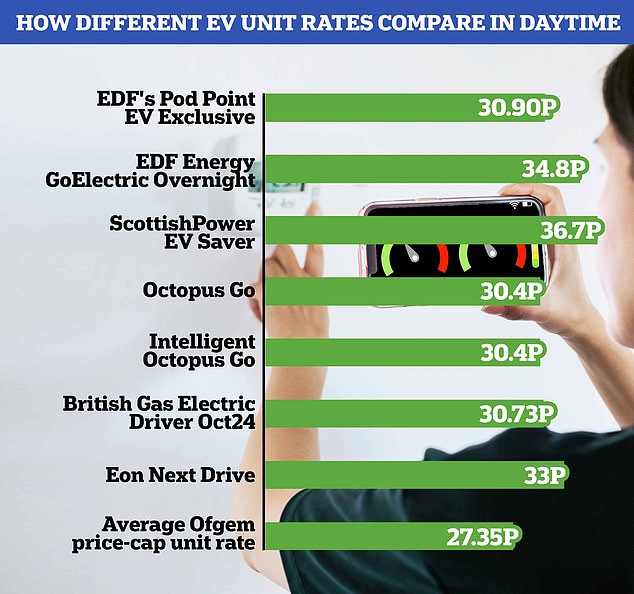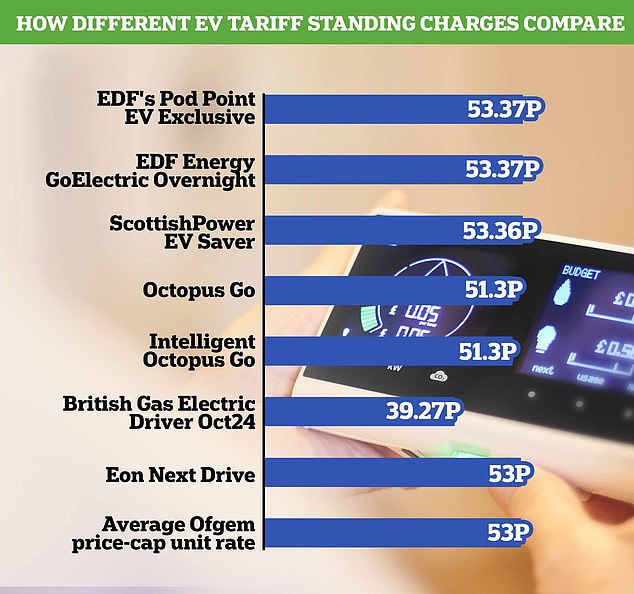Which electric vehicle energy tariff is cheapest for overnight charging?
Electric vehicle (EV) owners can choose from a growing list of specialist energy deals offering competitive rates for overnight charging, but with so much choice it can be difficult to choose the right one.
EV energy deals almost died out after energy prices started to rise in late 2021, with only Octopus Energy retaining its specialist electric vehicle tariff. But now there are seven to choose from, with a new one from EDF launching this week.
The deals are all similar in that they offer very cheap rates for electricity used overnight to charge an EV, with the added bonus that consumers can also save money by running appliances such as washing machines and dishwashers at night to run.
But that’s where the similarity ends as each deal varies, especially when it comes to the daily fixed costs and, crucially, what they charge for using electricity during the day.

Cheaper charging: Several EV tariffs offer significant discounts if you plug in your car overnight
Many specialist EV energy tariffs charge more than standard deals for daytime electricity use, as well as fixed costs.
Furthermore, none of these rates include gas. So if you are among the 75 percent of UK households with a gas connection, you will also need to take out a second energy contract if you opt for an EV electricity tariff.
Here’s how all EV rates on the market compare.
Cheapest EV rate for overnight charging
The overall cheapest EV tariff for overnight electricity is EDF’s Pod Point EV Exclusive, which charges 7.4 pence per kilowatt hour (kWh), fixed for a year.
For reference, most UK homes pay around 27.35 pence per kWh as they have a variable rate energy deal capped by the Ofgem price cap, so the EDF deal is 73 per cent cheaper for night time use.

EDF claims the deal is the cheapest of all EV electricity tariffs, costing an average household £1,177.43 per year for normal electricity use and mileage – for all electricity, not just car charging.
That works out to just £1.04 a year cheaper than British Gas’s second cheapest tariff, but £157.37 cheaper than Scottish Power’s most expensive tariff, according to EV charger manufacturer Pod Point.
Although the 7.4p night rate is only available from midnight to 5am, the EDF deal is also very competitive on daytime electricity rates compared to other EV tariffs.
EDF charges an average of 30.9 cents per kWh for daytime use, compared to a typical 27.35 cents for most homes with an Ofgem price cap.
However, the EDF EV tariff has a relatively expensive flat rate, of 53.37 pa per day, and requires drivers to have or buy a special Pod Point charger which costs from £999.
Cheapest EV rate for daytime use
Of course, an electric car is just one device for which consumers need electricity.
For most other electricity consumption, demand is likely to occur during the day.

The cheapest EV tariff for daytime use is from Octopus, which charges 30.4 cents per kWh with its Octopus Go and Intelligent Octopus Go deals.
Cheapest fixed costs for EV rates
While this isn’t the most expensive part of an energy bill, the fixed costs are still worth paying attention to.
These charges are paid daily, regardless of how much energy you use.
The cheapest EV fixed rate tariff is from British Gas, which charges 39.27 pa per day for its Electric Driver tariff.

This is significantly lower than the typical 53p flat charge paid by most UK homes on Ofgem price cap offers.
The most expensive flat rate EV tariffs are from EDF, which charges 53.37p for its Pod Point and GoElectric deals.
Other things to consider
An important caveat is that all of these prices – aside from the nightly cost – are not set in stone.
Both the fixed costs and daily rates of EV tariffs vary depending on where in the country you live, and many figures in this article are just averages.
Also, not all rates will be available in your region, and others may have terms and conditions attached. For example, Scottish Power’s EV tariff is only for existing customers.
In addition, many EV tariffs come with an exit fee, which is paid if a consumer wants to end a deal early.
For example, EDF charges an exit fee of £75, while Scottish Power charges £100. However, British Gas and Octopus do not charge exit fees.
All EV electricity tariffs also require consumers to have a smart meter, and of course the on-street parking required to even have an EV charger at home.

Should I get an EV tariff or an Economy 7 tariff?
If the idea of an EV tariff that offers cheaper electricity at night sounds familiar, that’s because it is.
EV tariffs are just a variation on the ‘Economy 7’ and ‘Economy 10’ energy deals, which were launched in the 1970s to provide cheaper, discounted power at night, for seven or 10 hours.
The difference between Economy and EV rates is that Economy deals offer more hours of cheap electricity, but less discount than EV deals.
You can still save on charging an EV with an Economy rate if you wish.
Some links in this article may be affiliate links. If you click on it, we may earn a small commission. That helps us fund This Is Money and keep it free to use. We do not write articles to promote products. We do not allow a commercial relationship to compromise our editorial independence.
